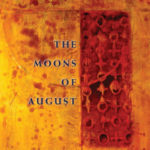Thirteen Ways to Get Some Writing Done Today

I just read a post about discouragement, over at The Write Practice, and that happens to be a topic I am well versed in. So here’s a sampling from my own little arsenal for writing in the face of discouragement.
- Remember Newton’s First Law, or this important piece of it: a body in motion tends to stay in motion. Pick up your pen, open a notebook, and start writing.
- Tell yourself you don’t have to write for very long — fifteen minutes, ten minutes, one minute. Just get yourself into motion on the page.
- Once you’re there, on that lovely page, if you can’t think of anything else to write, write about your discouragement.
- Give your discouragement a name — I mean this literally, a name like “Fred” or “Alice.”
- Give your discouragement a place to sit, maybe the couch opposite your chair. Talk to discouragement, sort of the way the Dixie Chicks talk to heartache in their song, “Hello, Mr. Heartache.”
- Unpack your discouragement. Write about how, at its core, it contains the word courage. Write about how another word for courage is heart. I recently had an “aha” moment that is relevant here. I realized (finally!) what the self-help gurus mean when they say don’t focus on what you don’t want. “Stop procrastinating,” for instance (one of my long-time admonitions to myself) focuses on “procrastinating,” which is what I don’t want. “Write with energy and vitality and love — right now” is a better way to get what I want. But there’s a little lesson here about discouragement, too. Thinking about it focuses on the courage at its heart (and the courage in your heart).
- Rewards are nice, but I kind of favor bribes. If you (like me) are always jonesing for a latte (double-tall, almond milk, please!), take your notebook to a coffee place. Get the damn latte. Write while you sip it.
- Looking through old drafts and feeling stuck? Choose one (if you have difficulty choosing, close your eyes and grab). Take it out for a latte.
- Read with a pen in your hand. If you find an abstract, non-sensual word like “difficulty” or “arbitrary,” write a list of images, sounds, tastes, textures, smells that you associate with that word.
- Write out (by hand!) a poem by your favorite poet, or a paragraph from a favorite novel. (Just doing this will get your hand in motion!)
- Ask questions. What do you love about this piece of writing? What are the coolest words in this poem or paragraph? What are the sentences like? How do they vary from one another? What trap-doors are here that drop you through the lines and into your own imagination?
- Rewrite the passage as if you are translating it into your own language.
- Instead of fussing over what to write, write a list of what you might write — think wedding and write something borrowed, something blue, something old, and something new — write a list of ten things (or thirteen!). James Altucher says when a list of ten feels beyond you, write a list of twenty, which helps you to lower your standards and write the nonsense that will get you where you want to go. Writing.



I absolutely agree with talking to your discouragement, sadness etc. It’s an old contemplative prayer trick to help you get settled. You do a body scan with your eyes closes (what physical things do you feel and where exactly? ) Name them and call them out: ‘Hello anxiety. Yeah, I feel you there. Ima watching you. You too hip. Yeah, I ran you too hard; sorry. ‘
The other points are great. I especially love #12.
I love this. I am not a writer, but I can envision using this for anything in my life wherein I feel self-thwarted or vulnerable.